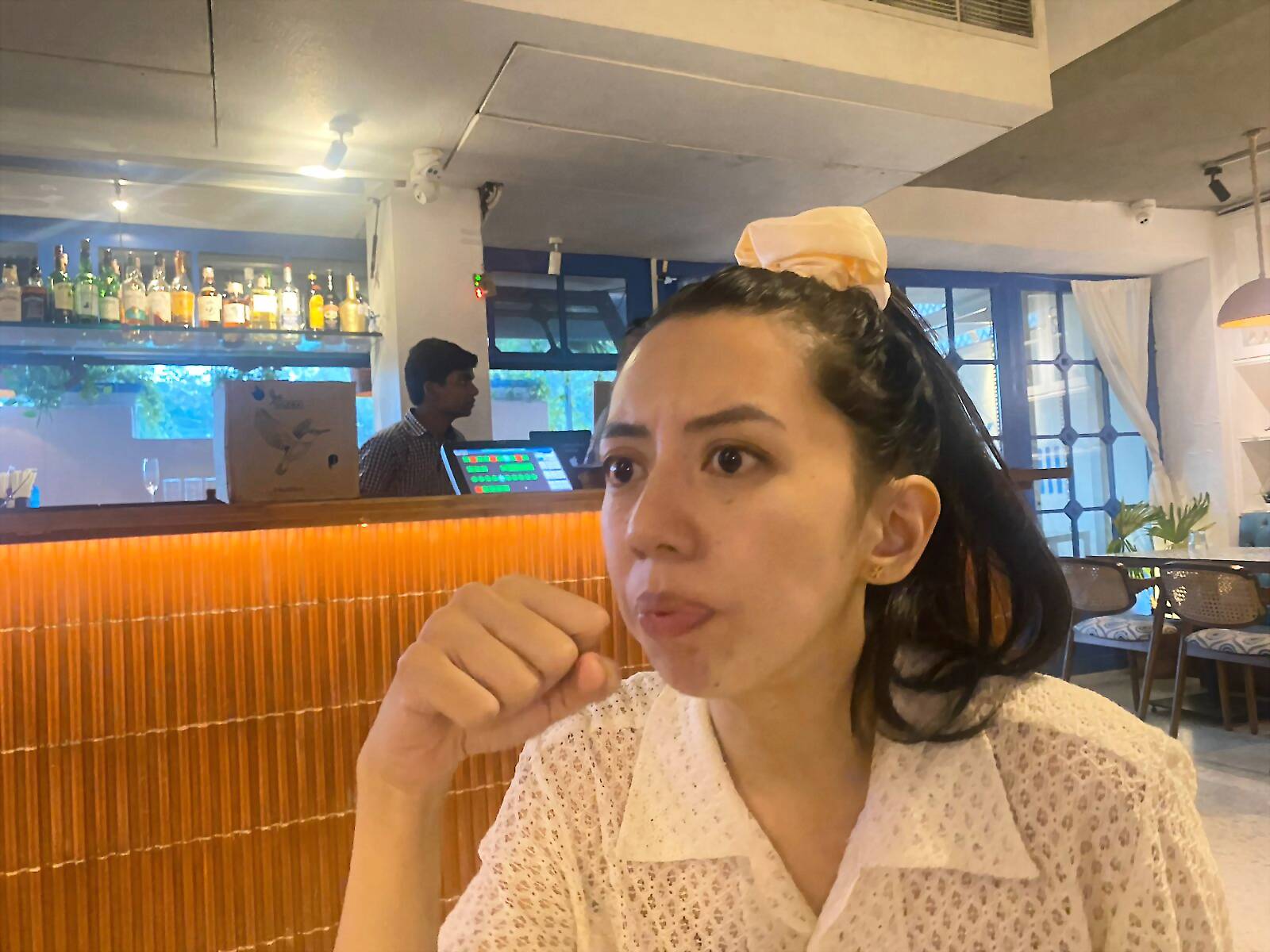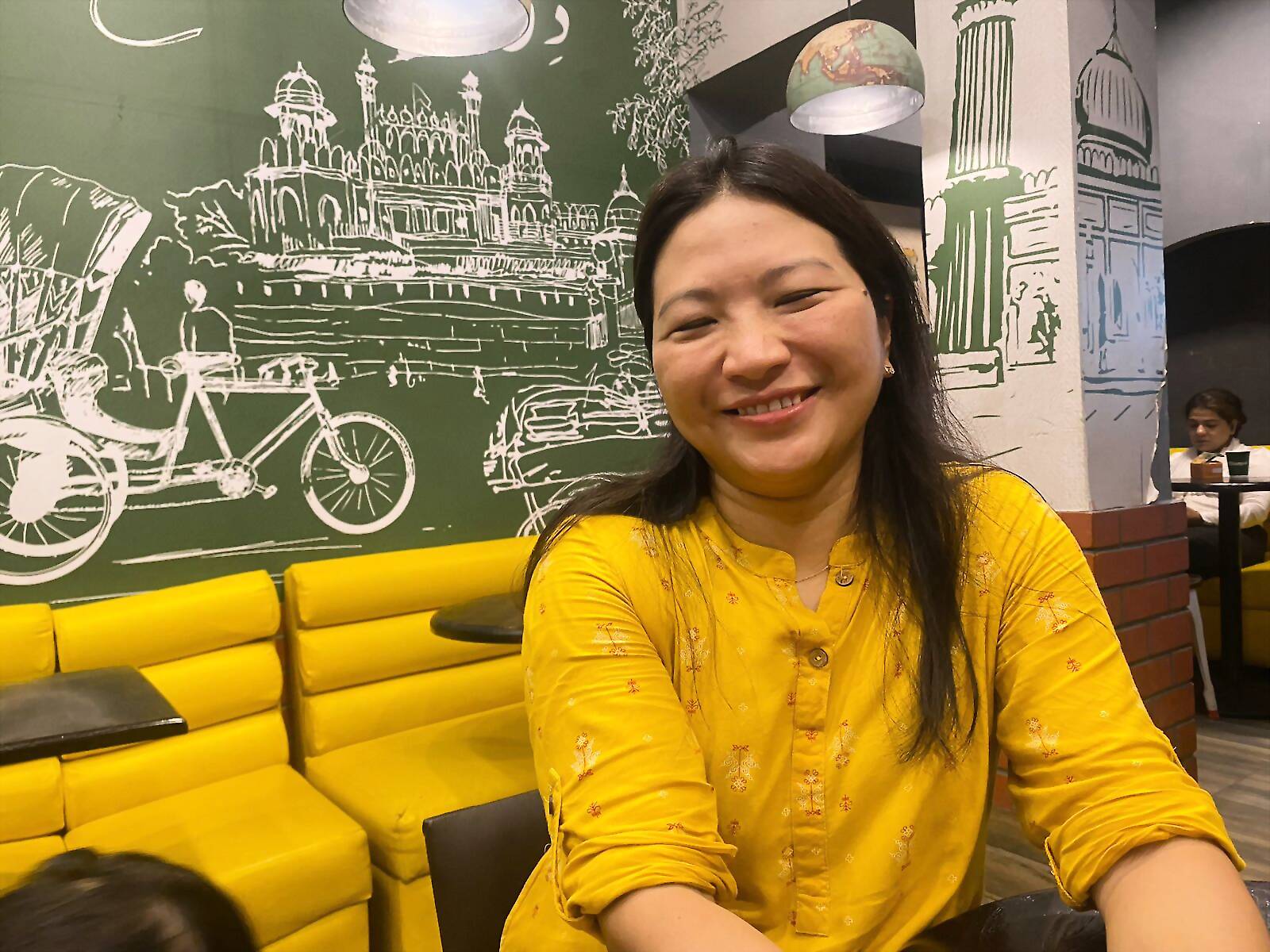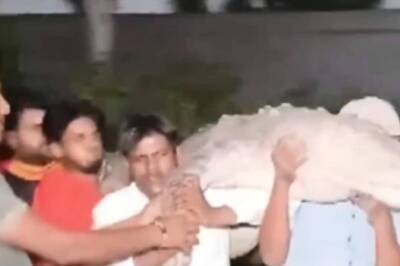
views
Independent India turns 75 this year and no celebration would be complete without honouring the women whose work and passion take the nation to greater heights every day. This series is News18’s salute to the women who have broken barriers to elevate India economically, socially, and politically.
Today, we meet talented actress and content creator Merenla Imsong and Varanasi sanitation champion Temsutula Imsong, both originally from Nagaland, as well as Manipur native Angel Konthoujam, who has for long fought against the stigma attached to menstruation.
In her Instagram reels, Merenla Imsong pokes fun at herself and makes an occasional reference to the state she comes from. But a few years ago, when she travelled from Kohima to New Delhi and then Mumbai, the joke was on her. “I remember many years back, when I was in Delhi and cooking in my kitchen with a few of my friends, some cops turned up to ask what we were cooking. They were told by the complaining neighbours that we were cooking dog meat. They saw the ingredients and told each other ‘this is chicken!’ This stereotyping is by now familiar to us,” she says.

This incident found its way into a popular OTT film Axone, which tells the story of racism against those who come from the Northeast. Imsong starred in the film and has appeared in other smaller projects on digital platforms. “But inevitably, the movie is about racism or I am made to pretend to be Chinese. It’s because of my features that I will never be given any other role. My friend who is dark-skinned is only offered movies which need her to portray a poor Dalit girl,” she says.
Imsong went to London as she wanted to study in peace for the Civil Services. But her relatives pointed out that her calling was acting. Coming back home to Kohima, Imsong told her parents she was shifting to Mumbai to act. “They were shocked and thought I had lost my senses. I went to audition for a theatre group in Mumbai as they needed artistes. They looked at each other and said, ‘oh she looks Chinese’. They asked me to speak in Chinese. I got the role and I began learning Mandarin from YouTube. Slowly, similar offers began to come. But they are all the same. It’s upsetting when they refer to me as a Northeast actor and not just as an actor. But apart from the state and racism the other big challenge for me is as a woman actor. Age is something I always have to be conscious about. I am 29 years old and often I lie that I am 27. Men are never asked their age,” she says.
Offers are limited as she is typecast, so now Imsong has decided to go big on YouTube and Instagram. The bio reads “aspiring cult leader”, which is because she wants to build a cult for herself, and many like her. With over 100k supporters, her YouTube channel is used to do stand-up comedy and mimicry and she is often asked to endorse products, so she manages to make good money and make ends meet in an expensive city like Mumbai.
Clean break
Temsutula Imsong saddles her two-year-old daughter on her waist when she comes to meet us. Delhi is her second home. Her first is Varanasi. Not even Nagaland, which she left many years ago with her husband to settle down in the holy city and get busy with cleaning the dirty ghats. “I came to Varanasi in 2012 and loved it. But one thing that pricked me was the sanitation and cleanliness issues. I came back to Delhi, but I decided to go back next year and start a project called ‘Dust-free Kashi’. I realised that health and sanitation awareness was important,” she says.
And the fact that she came from Nagaland earned stares from local people. “They would see my features and also my little knowledge of Hindi. Many thought I was Japanese and some would in fact speak to me in Chinese. When I would not understand, they realised I was an Indian,” she says.

It was a challenge for Temsutula to go house to house in small hamlets and teach young mothers how to look after themselves and their children. “Even teaching them how to use a nail cutter for small children became a challenge. Teaching them how to cure their hair of lice was a big challenge. It was a task to teach them all this. But eventually, they learnt,” she says.
Operation Prabhu Ghat, as it was called, began with many glitches and scepticism. “Not many local people were willing to join us. They would watch us as we would use our brooms and buckets to clean the silt. Then one fine day, many locals turned up. There were days when we were frustrated. Prabhu Ghat was an open toilet before we began to clean it. Initially our volunteers and we slept at the ghat at night to stop those who wanted to use it as a urinal. But eventually, we won. In five days, for example, we were able to remove 300 kg of excreta,” she recalls.
The local boatmen were roped in when the people would not help. The boatmen initially thought Imsong was crazy but then, later on, began to become her lifeline. And then work started on cleaning one ghat after another. “The icing on the cake was when one fine morning we woke up and we saw a tweet from the PM praising our work. I thought it was an April Fool’s joke as the tweet was on the 1st of April. Then we got to meet the PM when he visited Varanasi with our team. He praised our work,” she says.
Today, Temsutula Imsong has become synonymous with the Swachh Bharat Abhiyan of the government. “When he (the Prime Minister) announced Swachh Bharat, we thought why not step up our work. We wrote to the local administration for help. They responded and we began the main work with Prabhu Ghat in 2015. I used social media to make my point. I would post before-after pictures to inspire people,” she says.
In fact, Imsong would work on cleaning the ghat while carrying her baby. “Some would say I was indulging in child labour. I would tell them that this was Swachh Bharat Abhiyan. Many thought I had come from Nepal but I told them I was very much Indian,” she reveals.
Imsong now has moved on to pushing for organic waste recycling. Life has come a full circle. She began cleaning schools back home in Kohima as a five-year-old. Se now carries her daughter to work. And as a woman, she never felt that her gender would be a deterrent.
Angel grows wings
For Angel Konthoujam, it’s been a fight against taboos. The taboos in the minds of some, coming as she does from Manipur. And then becoming an ambassador fighting against taboos attached to menstruation. “There is a deep sense of shame and repression associated with menstruation,” she says.
After her unsuccessful attempt to secure full funding for her first effort to enter Cambridge University, Angel began work in a small village in Gujarat. She worked closely with women and girls of the Kotwalia community and had to strike up a rapport with them. From teaching them menstrual hygiene, making them accept the fact that periods were not a dirty thing, to helping them abandon the cotton rags as a way to manage their menstruation, it’s been a learning experience for Angel as much as for those she worked with.
“I showed them a tampon, cup, biodegradable sanitary napkins, and a cloth pad. They decided to try out the cloth pad and then I thought why not have our own design. We made this with cloth sourced from Surat and our women would carry it from village to village. The disappointment I felt because I could not go to Cambridge because of lack of funds was soon forgotten,” she says.
And then Cambridge happened. But the road to the eminent university has been very steep. “The Indians studying there could not digest the fact that I was someone from the Northeast who was studying there. There were racist slurs. They thought I was Chinese. I felt so much better when I would work with the women in Dang on menstruation. It was nice to see their eyes light up,” she says.
Angel points out that the journey from Imphal to Dang to Cambridge was not easy. “Contrary to the perception that the Northeast is progressive, Manipur is patriarchal. I was academically aligned and I am aware that most women have to fight to go study. However, my parents were a big help. But they also faced issues,” she says.
Today, as Angel boasts of being the first Meitei woman to go to Cambridge on a full scholarship, she can never forget those women in the villages of Dang who made her realise that her gender was not an impediment to success.
Read all the Latest News, Breaking News, watch Top Videos and Live TV here.



















Comments
0 comment